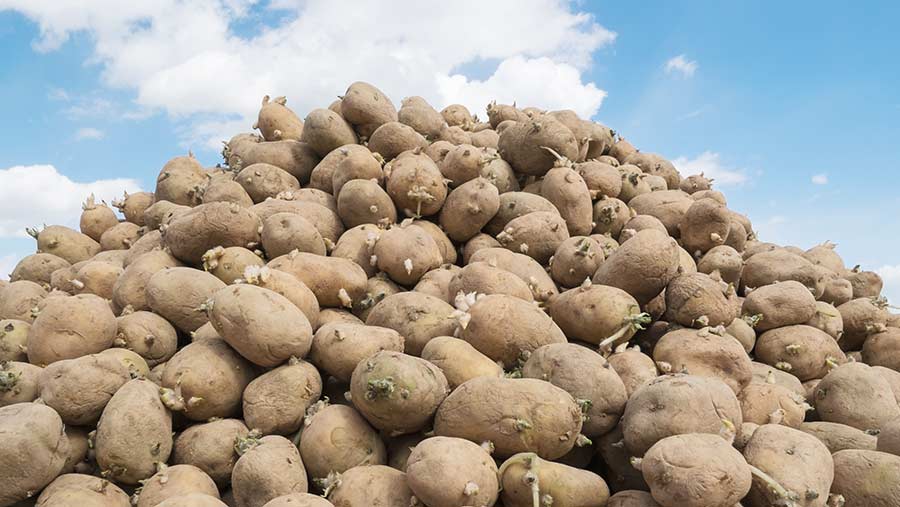Brexit: Seed potato sector on brink of EU and NI export ban
 © Tim Scrivener
© Tim Scrivener Britain’s seed potato sector is in turmoil, with just 10 weeks before exports to Europe and Northern Ireland (NI) face a total ban under a no-deal Brexit.
As an EU member state, Britain has exported 30,000t of seed worth £13.5m to mainland Europe each winter.
However, after 31 December, Britain will be classified under EU trade rules as a “third country” unless a trade deal is reached with the EU. Specific agreements must be in place for a third country to deal with the EU trading bloc.
The resulting “third country equivalence” recognises that a crop or product meets plant health (phytosanitary) and production standards. To date, the UK has failed to secure such an agreement.
See also: Four new potato products offer hope to growers
Grower, exporter and British Potato Trade Association president Sandy McGowan said even trade with NI will be banned, since as NI and the Republic of Ireland share a land border, EU phytosanitary rules apply.
Race against time
“Normally, exports continue until March. But this year we must ship everything in a few weeks before 31 December,” said Mr McGowan of Kinross-based Cygnet PEP.
Even if the crop can be readied, transporting thousands of tonnes of potatoes hundreds of miles is complicated, he said.
Three-quarters of the UK’s 12,000ha of seed potatoes are grown in Scotland and account for 80% of exports. Hundreds of lorries – if available – will have to be loaded through the Christmas period.
Once the crop is on the continent, further complications arise. “Sufficient long-term storage capacity will have to be found and there are concerns over potential degradation.”
The UK ships a further 90,000t worth £32m/year to countries beyond the EU.
Trade deals with key countries such as Egypt have been, or are in the process of being, agreed.
Long-term effects
There may be longer-term issues. Archie Gibson, executive director of potato import/export business Agrico UK, raised concerns over timescales.
Securing third country equivalence could take months or longer, causing potential disruption for 2021 crops, Mr Gibson said.
In the UK’s absence, EU customers may secure long-term deals with Dutch, French and German seed producers, or may simply cut back areas.
Imports
Concern had been raised that the government would impose a tit-for-tat measure barring seed imports from Europe. However, these fears have been allayed as a deal has been agreed in principle to allow imports, at least until June 2021.
Mr Gibson explained that the import trade was vital for UK growers.
“We cannot supply our own market with seed potato varieties, because we are dependent on research into new traits and disease resistance conducted in countries like the Netherlands.
“Farm-saved seed is also often of low quality and exhibits poor growth characteristics, so the import deal is, at least, some good news in an otherwise bleak situation.”
